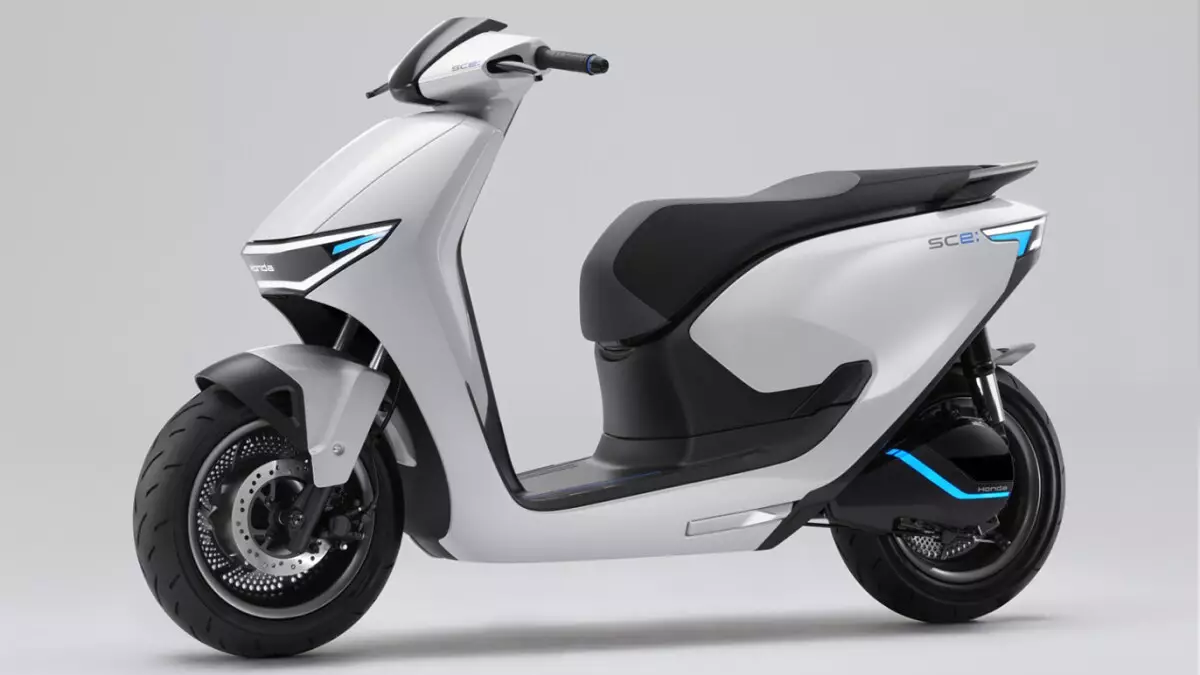As the electric mobility revolution accelerates across the globe, India finds itself at the forefront of this seismic shift. This year, the electric two-wheeler segment has garnered substantial interest, with many manufacturers launching electric scooters that cater to various consumer segments. Notably, well-established motorcycle brands are now pivoting towards electric vehicle (EV) offerings. Forward-thinking companies like Honda, TVS, and Suzuki are reportedly developing new EV models, expected to launch in the first half of 2025. The anticipated Bharat Mobility Global Expo 2025, slated for January, promises to unveil several exciting electric scooters tailored for the burgeoning Indian market. This article will delve into the features and anticipated launches of three highly awaited electric two-wheelers that may set the tone for the industry’s future.
Among the most highly anticipated electric scooters is the Honda Activa EV, projected for release in March 2025. Drawing inspiration from its gasoline-powered counterpart, the Activa 110, this electric version is expected to incorporate advanced technological features that speak volumes about Honda’s innovative ambition in the EV space. The inclusion of two Honda Mobile Power Packs, designed to be both detachable and swappable, demonstrates a strategic move towards enhancing consumer convenience.
One of the standout features is its state-of-the-art fully digital touchscreen instrument console. This not only signifies a shift towards digitization but also aligns with contemporary consumer preferences for smarter, more user-friendly interfaces. The scooter is expected to offer a robust range of over 100 kilometers on a fully charged battery—a vital consideration for potential buyers concerned about battery life. With a targeted price of around Rs 1 lakh (ex-showroom), the Activa EV is set to compete directly with prominent players like the Ola S1, TVS iQube, and Ather 450, potentially shaping the competitive landscape of electric two-wheelers in India.
In parallel, TVS is reportedly gearing up to launch two electric vehicles within the next six months, highlighting the brand’s commitment to embracing electric mobility. Among these is the TVS Jupiter EV, expected to be a game-changer in the mass-market segment aimed at everyday commuters. The Jupiter EV is estimated to achieve a range of 70-80 kilometers on a single charge, catering well to the daily travel needs of urban dwellers.
Remarkably, the pricing of the Jupiter EV is projected to be below Rs 1 lakh (ex-showroom), which could further fuel its appeal among cost-conscious consumers. The focus on affordability combined with functionality aligns with the overarching trend where manufacturers are gravitating towards making EVs accessible to the average consumer. This emphasizes not just the operational efficiency of these vehicles but also the socio-economic potential of electric mobility in addressing urban transportation challenges.
Another contender making headlines is the Suzuki Burgman EV, which is gearing up for production in December 2024. Suzuki has reportedly set an ambitious sales target of 25,000 units for this model, suggesting the company’s confidence in the Burgman EV’s market potential. Unlike previous versions which hinted at a detachable battery system, the latest updates indicate a fixed battery pack configuration, aligning with broader automotive trends that emphasize simplicity and reliability.
Although specific details regarding the pricing and features of the Burgman EV remain scarce, the anticipation builds as it is poised to debut at the Bharat Mobility Global Expo 2025. As this event serves as a touchpoint for industry stakeholders, the unveiling of the Burgman EV could significantly enhance Suzuki’s positioning within the electric two-wheeler market in India.
The electric two-wheeler segment in India is not merely a passing trend; it signifies a larger shift towards sustainable transportation solutions. The forthcoming launches by manufacturers like Honda, TVS, and Suzuki reflect a growing acknowledgment of the role electric vehicles will play in shaping the future of urban mobility. As these brands innovate and compete, consumers will benefit from a wider range of options tailored to their needs, thus propelling the electric revolution forward in India. The emphasis on range, affordability, and advanced features showcases that the electric two-wheeler market is poised for significant growth, ultimately contributing to a cleaner and more sustainable environment.

Leave a Reply